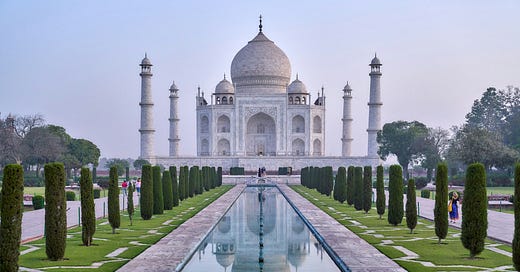June 2025: Tariffs, Trade Winds, and the Rise of India
As May comes to a close, the contours of a new global order are coming into focus. The world is navigating inflation, fragmentation, and intensifying tariff regimes. Yet amid this churn, the Asia-Pacific region is rising—not just in economic size, but in its ambition, innovation, and strategic importance.
1. Southeast Asian Startups Targeting the U.S. Market
Southeast Asian tech startups are increasingly focusing on the U.S. market, attracted by its size, maturity, and leadership in artificial intelligence. Entrepreneurs like Singapore’s Yoeven Khemlani of JigsawStack are creating software tools that appeal to U.S. customers, finding the American market more lucrative and accessible than the fragmented, diverse markets within Southeast Asia. This shift is propelled by venture capital support, such as from Antler and Peak XV, recognizing that U.S. clients enhance fundraising prospects for these startups. businessinsider.com
2. AI and Semiconductor Investments Amid Trade Tensions
Despite U.S. export restrictions, companies like Nvidia reported record-breaking revenues, highlighting the global demand for advanced AI chips. Nvidia's strong performance underscores the resilience of the AI sector, even as geopolitical tensions impact trade dynamics. theaustralian.com.au
In China, Huawei is investing in advanced chipmaking chemicals, supporting new ventures like Zhuhai Cornerstone Technologies to develop high-end materials such as photoresists. These efforts indicate a strategic move to bolster domestic semiconductor capabilities in response to global supply chain challenges. ft.com
3. Regional Startup Ecosystem Developments
Vietnam's Rising Startup Ecosystem: Vietnam has emerged as an attractive destination amidst rising production costs in China and the effective implementation of its free trade agreements with the EU, the UK, and Asia-Pacific countries. StartupBlink's Global Startup Ecosystem Index 2025 report notes positive and breakthrough developments in Vietnam's three major startup hubs. en.vneconomy.vn+1enterprisesg.gov.sg+1
Singapore's Global Ranking: Singapore climbed to the 4th spot in the global startup ecosystem ranking, trailing only Israel, Britain, and the U.S. This ascent reflects the nation's robust infrastructure, supportive policies, and vibrant innovation landscape. enterprisesg.gov.sg
4. Investment Trends and Capital Flows
Citi projects a 10% increase in Asian tech fundraising in 2025, fueled by advancements in artificial intelligence and strong activities in India and Taiwan. The bank expects at least $77 billion in fundraising compared to $70 billion in 2024, driven by AI-related funding across hardware supply chains and digital infrastructure. prnewswire.com+13reuters.com+13forrester.com+13
In India, family-run businesses in Vidarbha have committed Rs25 crore to invest in 50 regional startups through the 'Family Cap Nagpur' initiative. This program aims to offer startups not just funding, but also strategic mentorship and access to business opportunities, catalyzing long-term economic transformation in the region. timesofindia.indiatimes.com
5. Challenges: Tariffs and Economic Uncertainty
Forrester's May 2025 report indicates that evolving tariff negotiations are dampening the APAC tech outlook. The original forecast for 6.5% APAC tech spending growth is expected to be revised down by 1–2% amid rising uncertainty. forrester.com
India Overtakes Japan: A Moment That Signals More Than Just GDP
One of the clearest signals of change: India has officially overtaken Japan to become the world’s fourth-largest economy, with a nominal GDP of $4.187 trillion in 2025, edging past Japan’s $4.186 trillion (IMF data).
This milestone is not just symbolic—it’s structural. India’s economic engine is powered by strong domestic consumption, a booming digital sector, and rising investment in infrastructure and services. Prime Minister Narendra Modi has now set his sights on an even bigger goal: moving India into the third spot globally, overtaking Germany.
“The pressure is now to move from 4th to 3rd position,” PM Modi said recently, underscoring India’s confidence despite pandemic shocks and a volatile global economy.
IMF projections support this ambition, estimating India’s GDP will hit $5.58 trillion by 2028, outpacing Germany’s projected $5.25 trillion.
What does this mean for startups? India is no longer just a talent market or backend service hub. It’s fast becoming a global launchpad for digital-first products, AI innovation, fintech, healthtech, and clean energy solutions tailored to scale.
Founder Playbook: Operating in the New Normal
In this new era of a highly disruptive environment and constrained capital, good founders are operating with precision:
Design for resilience: Target overlooked niches and legacy markets—spaces where building wasn’t possible before, but new technologies like AI make it possible.
Control your stack: Own your IP, distribution, and infra. Don’t rent your moat.
Build for value, not vanity: Fundamentals over flash. Capital efficiency is the new edge.
At 007 Venture Partners, we’re committed to backing purpose-driven founders who are building transformative companies that create lasting, positive impact on society.




